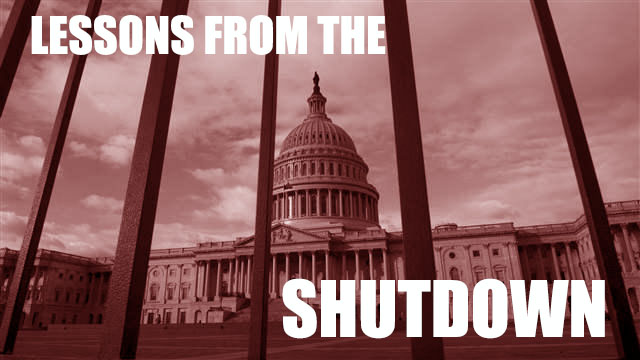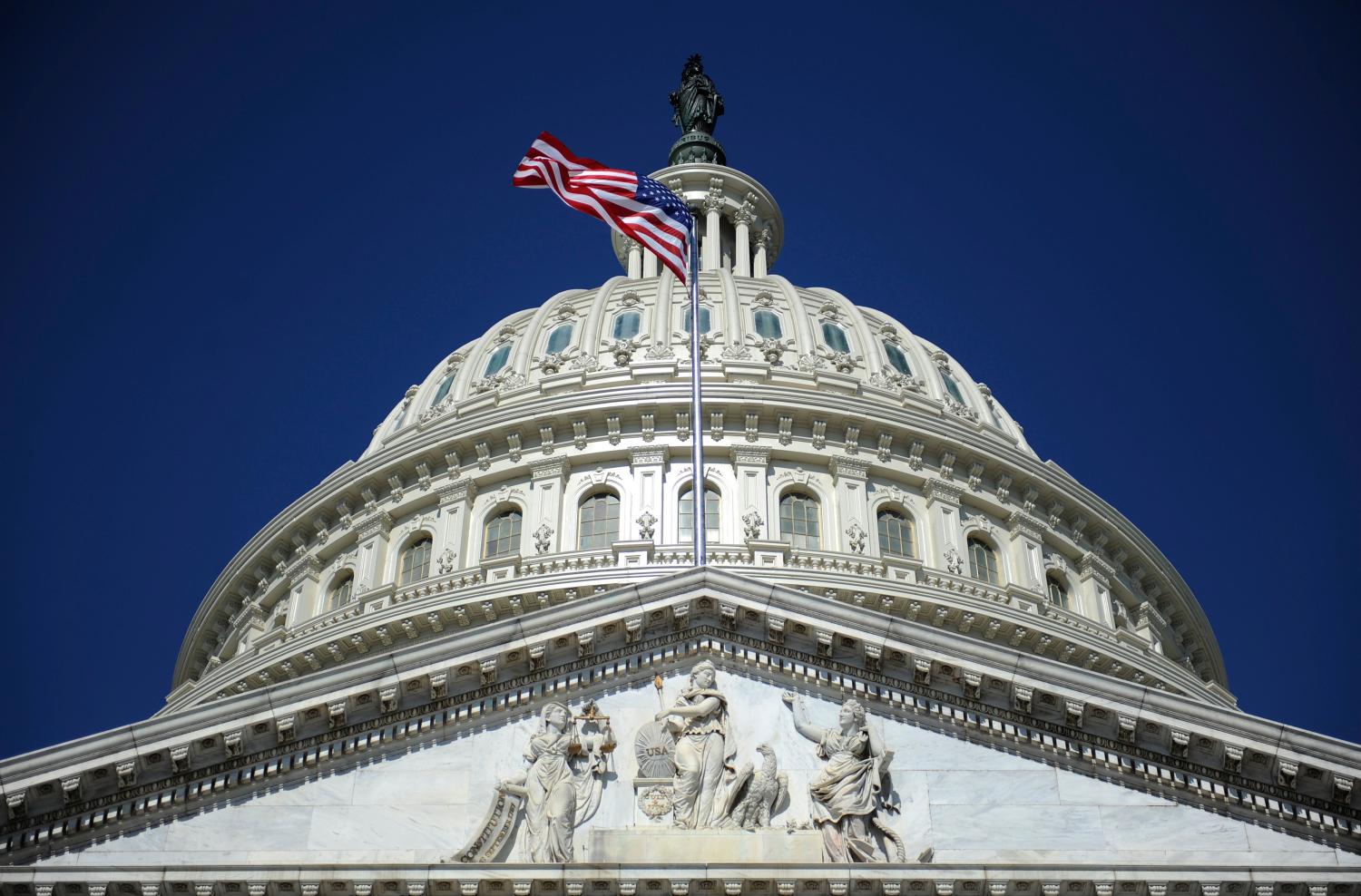The Lessons from the Shutdown Series examines the costs and consequences of the recent shutdown and debt ceiling fights. In this piece, John Hudak argues that the recent Senate deal shows the benefits of pork barrel politics for improving the function of Congress.
Does the recent shutdown and default crises mean that gridlock is now a permanent feature of life in Washington, DC? Maybe. But contrary to conventional wisdom, one of the ways out of gridlock might be to return to pork barrel politics or the targeting of government funds to key constituencies. How can pork be the cure for what ails America? After all, pork barrel politics has long been vilified in the nation’s capital, but the recent budget crisis showed that it has real benefits for the function of government.
Pork and the Government Shutdown
The deal reached in the U.S. Senate included a provision that raised the spending cap placed on a dam construction project in Kentucky. Through this provision, the Army Corps of Engineers could direct funding up to $2.9 billion to the Olmsted Locks and Dam Project. Of course, this project benefits the state that is home to Senate Minority Leader Mitch McConnell. This provision—though included in prior House and Senate legislative proposals and President Obama’s budget proposal—set off a firestorm of criticism of the Senate, generally, and Leader McConnell, specifically.
However, the provision simply raises the cap on the cost of the project. The funding will likely be drawn from the funds appropriated to the Army Corps of Engineers through the baseline of the continuing resolution, not from additional funding. In addition, by law, only half of the funding is drawn from the U.S. Treasury. The remaining half comes from the Inland Waterways Trust Fund that exists through a fuel tax levied for transport on inland waterways.
How Pork Works
Despite political talking points that argue that pork leads to out-of-control federal spending, explodes our deficit, is tantamount to corruption, and is some type of anathema in the American system, the reality is much less terrifying. Pork can come about in two different ways. First, Congress can earmark appropriated funds for specific projects. To be clear, Congress settles on an appropriations bill with a set cost, and Members insert requests for how that money will be spent. In this way, pork barrel politics determines how the pie is cut; it does not decide the size of the pie.
In Presidential Pork, a book due out this winter, I argue that if Congress doesn’t engage in pork barrel politics, the president will. Money is appropriated and someone—the president and his appointees or Members of Congress—has to determine how that money is spent. Banning earmarking and peddling doomsday scenarios about pork simply redirects which political actors distribute existing funds, rather than determining the overall levels of funding.
Admittedly, pet projects through earmarking can influence the bottom line of individual appropriations bills, as legislators vie for their own piece of the pie. However, appropriations bills are often large enough to accommodate these requests without a need for increasing the bottom line.
A second form of pork can affect baseline levels of funding. This behavior occurs when Congress appropriates additional funds, beyond the normal appropriations process. This often occurs through emergency or supplemental spending bills. However, these bills are often important public initiatives, like the emergency bill passed this year in response to Superstorm Sandy.
Pork is typically not the cause of growing budgets and deficit. When such targeted funding does spend beyond standard, annual appropriations, it occurs because of serious, emergency policy needs.
How Pork Helps Break Gridlock
Allowing Members of Congress to direct federal dollars to their states and districts can be positive for governance in the U.S. Pork allows Congressional negotiators to include incentives that help build coalitions, pass bills, and grease the wheels of a largely frozen legislative process. Earmarking projects can make support for a given bill more appealing. Earmarking can work across pieces of legislation as well. A project earmark in one bill for one legislator can be complemented with a different earmark in another bill for a different legislator, making support for both bills more appealing—a type of legislative logrolling. However, despite the benefits for the legislative process, this behavior is now frowned upon, banned, or is often fodder for election year attack advertising.
I am surely not the first to argue that the vilification of pork and the recent House and Senate bans on earmarks have done damage to the legislative process. Decades of research from political scientists and years of reporting from journalists have suggested the same. Yet, the recent budget battles help put into perspective the true importance of pork barrel politics, in terms of costs and benefits.
By most accounts, Senator McConnell was not directly responsible for the inclusion of the Olmsted Lock and Dam provision in the most recent Senate compromise. However, let’s say he was, hypothetically. Imagine a scenario in which Senator McConnell met with Senator Harry Reid and said, “I will deal. I will get a compromise together that my Republican colleagues can support. All I ask is for you to increase the cap on this waterway project in my state.”
The cost of the project above the prior baseline: $2.143 billion. The cost in appropriations: $1.08 billion. The cost in new funding above the baseline for the Army Corps of Engineers: $0.
What were the benefits of this deal? The government reopened after 16 days of being shut down. The economy, hemorrhaging nearly $2 billion in GDP per day was righted. The Treasury avoided a catastrophic debt default that would have meant additional economic damage.
The first few days of the government shutdown extracted more out of GDP than the entire cost of the Olmsted Lock and Dam project. The relatively meager sum of money directed to finish an existing engineering project on the Ohio River was surely worth the benefits it delivered to the overall economy.
Criticism of Senator McConnell or Senate negotiators who hammered out the compromise is misplaced. If policy makers, legislators, and media want to point fingers or heap blame, they should start with those who perpetuate the myth that pork hurts America. It is not.
Dysfunction hurts America. Gridlock hurts America. A Congress that cannot pass necessary legislation hurts America. Pork may be the best tool we have to battle what hurts America.
The Brookings Institution is committed to quality, independence, and impact.
We are supported by a diverse array of funders. In line with our values and policies, each Brookings publication represents the sole views of its author(s).






Commentary
Lessons from the Shutdown: Pork and Earmarks Help Break Gridlock
October 30, 2013